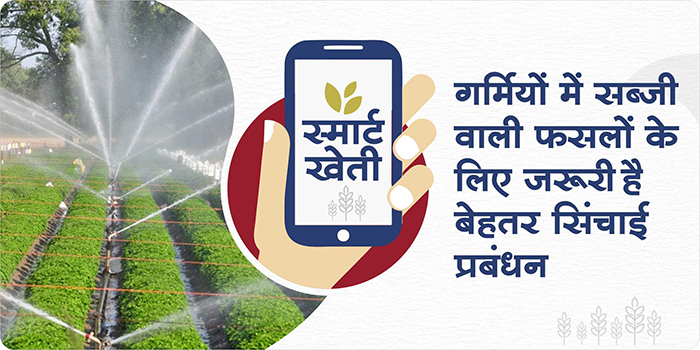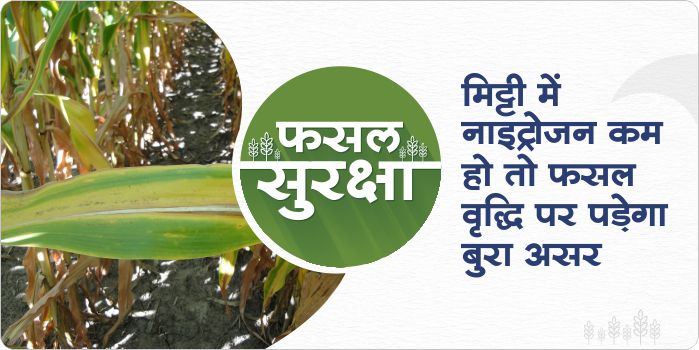- Spraying of irrigation water like rain water on crops is called the sprinkle method or shower irrigation.
- In this, water is distributed by pumping through a pipe mechanism, then air is sprayed through the spray head and over the entire soil surface, splitting the water falling on the ground into small droplets.
- Fountains spread efficiently from small to large areas and can be used on all types of soil.
- Irrigation through this process does not cause water logging on the soil, which greatly increases the soil’s water-absorbing capacity.
- By irrigating with this, there is no waterlogging on the ground, which greatly increases the soil’s water-absorbing capacity.
- Places where land is up and down, simple irrigation is not possible at the places where sprinkle irrigation is beneficial in those places.
- By irrigating this method, production is also good and water conservation is also done.
Chilli gets miraculous early growth using Chilli Samriddhi Kit, watch video
Many farmers are cultivating chillies. Farmers also use a lot of crop nutritional products to get good production from the crop. But by using Gramophone’s Chilli Samridhi Kit, you can give nutrition to your chili crop, which increases the chances of good crop growth as well as good production.
In the video, you will see how Kailash Mukati Ji, a resident of Hathola village in Barwani district of Madhya Pradesh, took a miraculous initial growth using the chilli samriddhi drip kit. You can also get good growth by using this kit. Watch the full video and visit the Gram Bajar section of the app to order the Chilli Samriddhi Kit.
ShareRead these articles of Gramophone daily for such important agricultural related information. Share this article with your friends by clicking the share button below.
What is the benefit of magnesium sulfate in bitter gourd crops?
-
The use of magnesium in bitter gourd crops increases its greenery.
-
Magnesium accelerates photosynthesis, leading to high yields and good crop quality.
-
Magnesium provides nutrients gradually to the crop, thereby providing nutrients throughout the entire crop cycle of the bitter gourd crop.
-
Due to the lack of magnesium, light green spots are formed on the vein of the leaves. The crop is destroyed in an immature state, magnesium can protect the bitter gourd crop from problems.
ShareConnect your bitter gourd and other crops fields with the My Farm option of Gramophone app and keep searching for accurate advice and solutions related to smart agriculture throughout the crop cycle. Share this article with your friends with the share button below.
Chilli Samriddhi Kit is a tried and tested product to get good yield from chilli crop
-
Although chilli can be grown in many types of soils, loam soils with organic elements and with a good drainage system are best for this.
-
Chilli Samriddhi Kit’ will become the protective shield of your chilli crop, using which, you will get everything that the chilli crop needs.
-
After last plowing, mix ‘Chilli Samriddhi Kit’ presented by Gramophone in 5 tons of good rotten dung compost at the rate of one acre and mix it with final plowing. After that, irrigate lightly.
-
This kit contains a mixture of beneficial bacteria, fungi and nutrients, its use at the time of sowing in the field and the plant can also be saved from many diseases. This kit also helps in increasing the fertility of the soil.
Add your chilli and other crop farm with the Gramophone app’s My Farm option, and keep searching for the perfect advice and solutions related to smart agriculture throughout the crop cycle. Share this article with your friends with the share button below.
Share
How to make water available in vegetable crops during water shortage in the summer season
-
There is high demand for vegetable crops in the summer season.
-
But the farmers do not have enough water for irrigation, hence farmers are not able to get much benefit from the vegetable crops.
-
Vegetable crops should not be sown in direct sunlight, even if there is a shortage of irrigation water, you can get good production.
-
The irrigation of the crop should be arranged in such a way that less water is used to produce a better crop.
-
Drip irrigation, sprinkler irrigation, or gardening water pots are some methods which can be used to directly water the roots of the plant.
-
This way, a good crop can be grown even with low water availability.
Add your Farm to the My Farm feature of the Gramophone app and keep searching for accurate advice and solutions related to smart farming throughout the cropping cycle. Share this article with your friends with the share button below.
Share
Use of organic fungicides and organic pesticides gives many agricultural benefits
-
Organic fungicides and pesticides are products based on pests, fungi, bacteria and flora,
-
They help in increasing production by protecting crops, vegetables and fruits from insects and diseases.
-
Being a product based on flora and fauna, organic pesticides and fungicides get decomposed in the soil in about a month and leave no residue, making them eco-friendly.
-
Beans, fruits, vegetables can be harvested and used immediately after the use of organic products.
ShareFor the important information related to modern and smart farming, read the articles of Gramophone. Share this article with your farmer friends with the share button given below.
What are the symptoms of nitrogen deficiency in crops?
-
Due to the lack of nitrogen, the color of the plant leaves starts to turn pale yellow.
-
Plant growth stops.
-
The lower leaves of the plants begin to fall.
-
The plants have less buds and flowers.
-
Crops are harvested prematurely due to nitrogen deficiency.
-
Plants appear tall and thin.
ShareFor the important information related to modern and smart farming, read the articles of Gramophone. Share this article with your farmer friends with the share button given below.
How do farmers protect the next crop from mites outbreak
-
Farmers are always worried about the mites attacking their crop.
-
If a mites attack has occurred in heavy numbers in the previous crop, then its effect is also seen in the new crop.
-
The residue of the old crop should not be left in the field so the mites’ attack does not affect the new crop in the field.
-
Because these residues help mites attack in the new crop.
-
Therefore, in order to avoid mites’ attack, collect and dump the old crop residues away from the field by digging a pit.
-
After this, spray the decomposer on the crop residue and cover the pit with soil.
-
In this way, these residues will be converted into manure.
ShareFor other information related to crop protection measures, keep reading gramophone articles daily. Click on the share button below to share this article with your friends.
How to use vermicompost in summer in farm
-
Nowadays vermicompost is being used in large quantity as organic manure
-
Because it is easily available and provides more benefits at a lower cost.
-
Before using vermicompost in summer, deep plow the field and turn the soil up and down.
-
And you must ensure enough moisture in the vermicompost
-
After this, thoroughly broadcast the vermicompost in the entire field
-
Make sure to irrigate the field after using vermicompost.
ShareFor the important information related to modern and smart farming, read the articles of Gramophone. Share this article with your farmer friends with the share button given below.
These symptoms will be seen in crops due to nitrogen deficiency in soil
-
Nitrogen is required for plants especially for fruit and seed development.
-
In addition, it increases the size and quality of the leaf, and increases the longevity of the plant.
-
Due to its deficiency, the normal chlorosis of the entire plant is of a light green color and after this the yellowing of the old leaves spreads towards the young leaves.
-
The leaves are unable to produce enough chlorophyll. This stage of the leaves is called chlorotic. Lower leaves (older leaves) show the first symptoms.
ShareFor the important information related to modern and smart farming, read the articles of Gramophone. Share this article with your farmer friends with the share button given below.










